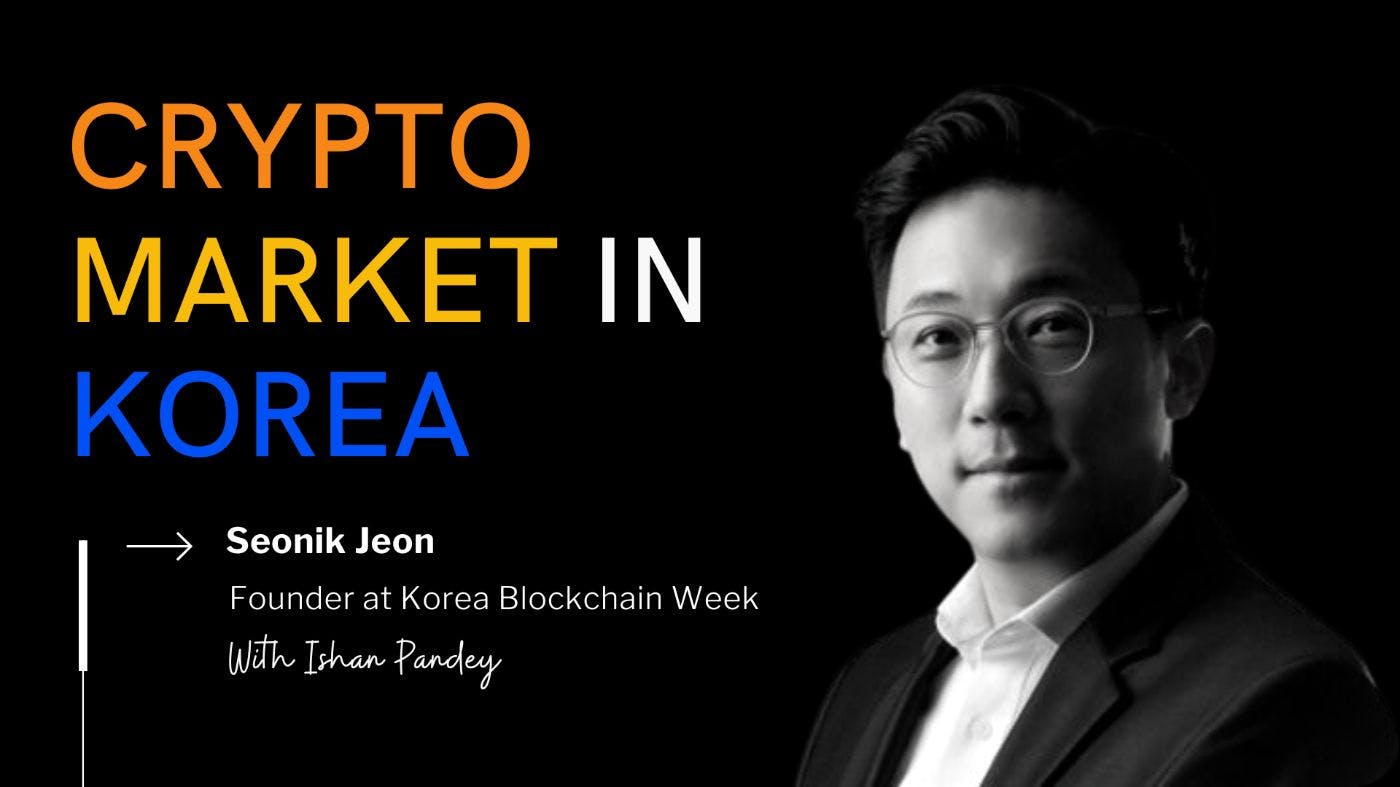529 reads
Understanding the Cryptocurrency Market in Korea with Seonik Jeon
by
July 14th, 2022
Audio Presented by

Building and Covering the latest events, insights and views in the AI and Web3 ecosystem.
About Author
Building and Covering the latest events, insights and views in the AI and Web3 ecosystem.
